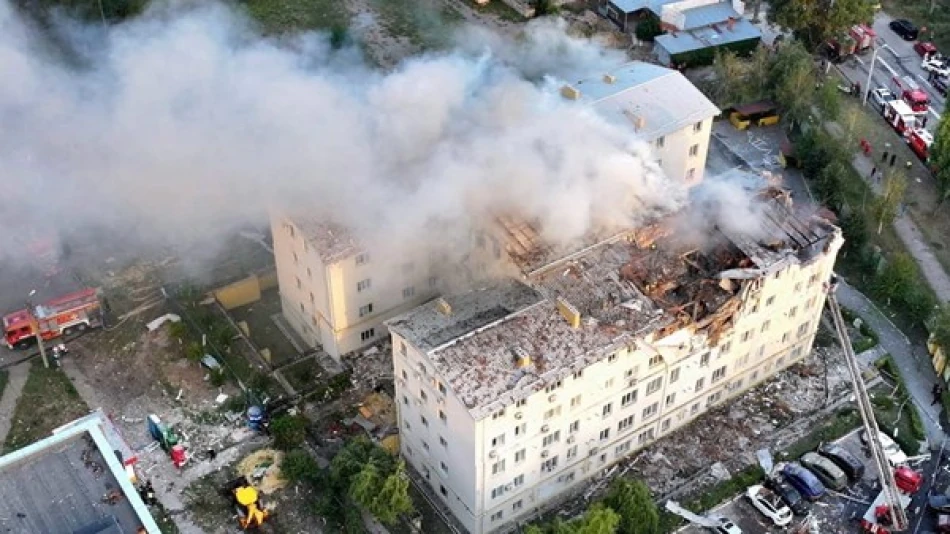
Deadly Strikes Reported Across Ukrainian Cities, Sparking Concern Amid Ongoing Conflict
Russia Escalates Ukraine Strikes Hours Before Trump-Zelensky Summit
At least ten people died in coordinated Russian attacks across multiple Ukrainian cities on Monday, just hours before a critical Washington meeting between President Donald Trump and Ukrainian President Volodymyr Zelensky. The timing of the deadly strikes appears calculated to underscore Moscow's military leverage as diplomatic discussions intensify over ending the nearly three-year conflict.
Deadly Strikes Target Key Ukrainian Cities
The overnight assault demonstrated Russia's continued capacity to inflict civilian casualties despite ongoing diplomatic efforts. In Kharkiv, Ukraine's northeastern industrial hub, drone strikes killed seven people and wounded 23 others. The city, located just 40 kilometers from the Russian border, has remained a frequent target throughout the war due to its strategic importance and proximity to Russian launch sites.
Separately, missile attacks on Zaporizhzhia in southeastern Ukraine claimed three lives and injured 23 more, according to regional governor Ivan Fedorov. The southern city sits near the front lines and has faced persistent bombardment since Russia's 2022 invasion began.
High-Stakes Diplomacy Under Pressure
The attacks occurred as Zelensky prepared to brief Trump on outcomes from recent talks with Russian President Vladimir Putin in Alaska. This diplomatic choreography reflects the complex three-way negotiations that could determine Ukraine's future, with Trump positioned as a potential mediator despite his controversial stance on the conflict.
Trump has publicly pressured Kyiv to negotiate with Moscow, recently stating that "Russia is a great power, and they [Ukraine] are not." This comment signals a transactional approach that prioritizes power dynamics over territorial sovereignty—a marked departure from the Biden administration's unwavering support for Ukrainian resistance.
Security Guarantees Remain Central Issue
Ukraine's primary demand centers on obtaining concrete security guarantees from the United States and European allies. This reflects lessons learned from the 1994 Budapest Memorandum, where Ukraine surrendered its nuclear arsenal in exchange for security assurances that ultimately proved worthless when Russia annexed Crimea in 2014.
The challenge for Western negotiators lies in crafting commitments robust enough to deter future Russian aggression without triggering direct NATO involvement. Similar dilemmas have emerged in other frozen conflicts, from Georgia to Moldova, where incomplete security arrangements have enabled prolonged instability.
Strategic Implications for Regional Security
Monday's attacks underscore Putin's strategy of maintaining military pressure while engaging diplomatically—a tactic designed to extract maximum concessions from a war-weary Ukraine. The timing suggests Moscow views the Trump administration as potentially more amenable to territorial compromises than previous U.S. leadership.
For European allies, the Washington summit represents a crucial test of transatlantic unity on Ukraine policy. Any significant shift toward accommodation with Russia could reshape NATO's eastern flank strategy and influence defense spending priorities across the alliance.
The civilian casualties in Kharkiv and Zaporizhzhia serve as a grim reminder that diplomatic progress remains fragile while active hostilities continue. Whether these latest strikes will strengthen Ukrainian resolve or accelerate pressure for territorial concessions may depend largely on the substance of the Trump-Zelensky discussions and any security commitments that emerge.
Most Viewed News

 Layla Al Mansoori
Layla Al Mansoori






